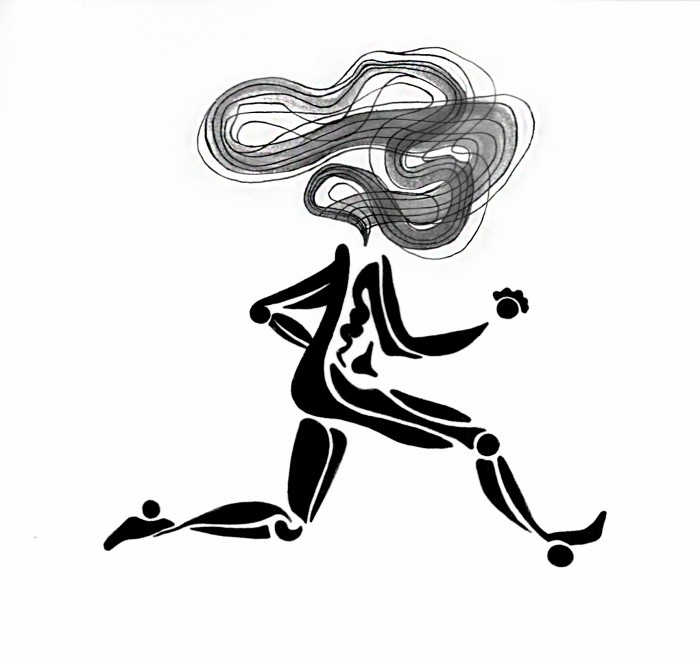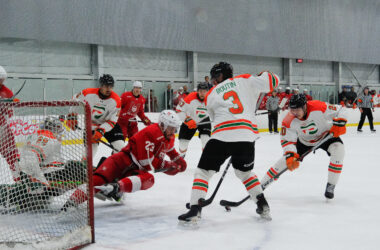It’s 2 p.m. on a Tuesday in Sept. and Emily Davies, assistant-captain of the McGill Martlet hockey team, is pulling up to McConnell Arena on her bicycle for a pre-practice leg workout. Half a world away and six hours behind, Kaitlyn Salter, captain of the women’s lacrosse team at University of St. Andrews in Scotland, is partaking in an early morning skills session. Both are elite athletes, yet both trained very differently over the summer to prepare for their respective seasons.
“I receive my [summer] training programs from a hockey-specific gym,” Davies said. “I often train there if I’m in the area on weekends.”
Davies is also an active member of an off-season hockey league, which she believes is integral to keeping her hockey-specific skills sharp when Martlet hockey isn’t in session.
Salter, conversely, adopts a training regimen that allows her to stay healthy and take time off from lacrosse-specific training during the summer. Her sports training is independently organized–she works out at the gym in the building where she works, plays tennis with friends and adheres to a healthy diet.
“The training I do in the summer is very cardio- and strength-tailored,” Salter explained. “It helps me with my game, in the sense that I can run across the entire field for the 60-minute game time period [… but] the other half of lacrosse training is maintaining good stick skills. This is something that I think my summer training schedule lacks in, as I leave my stick at my flat in the UK during the summer.”
The different attitudes towards summer training could reflect a cultural difference between North America and the United Kingdom. It’s no secret that college sports in the United States are taken quite seriously–a phenomenon that has diffused into Canadian values as well. With college sports often televised in North America–the CIS women’s hockey finals airs live on Sportsnet 360–pressure to perform is often heightened for athletes.
Salter, however, believes the difference in training is based not on country, but rather on popularity. She notes that American, Canadian, and British players on her team all play with “nothing short of intensity” when representing St. Andrews. However, lacrosse is not as popular a sport in the UK as it is in the US, where college teams practice five times a week in addition to fitness sessions every morning.
“That is definitely a level of intensity that we just don’t have at St. Andrews, as lacrosse isn’t a popular enough sport,” Salter clarified. “But, we do have this level of intensity with our men’s rugby team. This is probably due […] to the fact that in the UK, rugby is a very popular sport.”
Though both Davies and Salter have reached the pinnacle of achievement at their sports–winning league titles and assuming leadership roles on their teams – each has a different personal philosophy regarding summer training.
Davies maintains, “if an individual is seriously committed to a sport, they should just focus on training for that sport.”
However, according to Salter, “in the summer there should be a fine balance of doing what will keep you in shape for your sport, but also what you enjoy doing.”
Davies believes that hockey-specific training gives her an edge heading into the season: She has developed her strong stamina through summer training and her strength through weight training. This has helped refine her game during her summer ice sessions.
Salter, too, feels ready for camp. Though she acknowledges that her stick skills can still improve, her intense running schedule has put her in a prime position to excel at her “least favourite fitness drill–hill sprints.
Ultimately, the different training philosophies to which athletes ascribe are personal choices, built on preparing for the year ahead, both in mind and body. Davies, perhaps, encapsulated this idea best with her ideology.
“[Setting] yourself up for success […] when the season starts is the most important thing,” Davies said. “If an athlete is prepared physically and mentally for the year, then they’ve done their job.”








